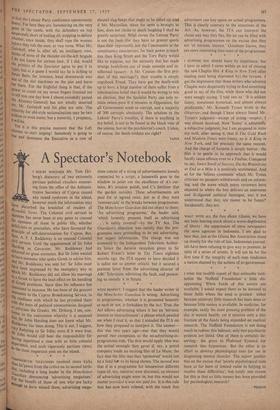c°M11/41MERCIAL 'TELEVISION received more kicks than ha'pence from the critics
on its second birth- day, including a long leader in the Manchester Guardian denouncing 'advertising magazines.' or the benefit of those of you who are lucky t nuugh to have missed them, advertising maga-
zines consist of a string of advertisements loosely connected by a script; a housewife goes to the window to point out the excellence of A's cur- tains, B's window polish, and C's fertiliser (for the garden outside). These advertisements are paid for at agreed rates, just as if they were 'commercials' in the breaks between programmes. The Manchester Guardian did not object to them; 'An advertising programme,' the leader said, 'which honestly presents itself as advertising . . . is safely covered'—by the TV Act. The Guardian's objection was merely that the pro- grammes were pretending to be not advertising, but expert information. The charge was not answered by the Independent Television Author- ity "(since the derisive reception given to Sir Robert Fraser's letter in The Times eighteen months ago, the ITA appear to have decided it is safest not to answer critics); but it secured a penitent letter from the advertising director of ABC Television, admitting the fault, and promis- ing to remedy it in future.
* * *
































 Previous page
Previous page